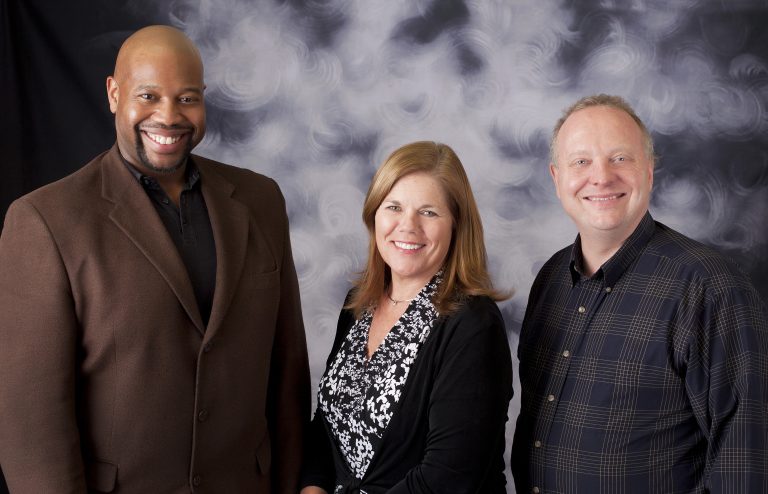Blog

By Dr. Aaron Ellington, PhD, LPCC-S, LICDC-CS
When seeking mental health treatment, choosing an evidence-based therapy (one supported by scientific research) is crucial for effective and lasting results. Evidence-based therapies have been rigorously studied and shown to help with specific mental health conditions, making them reliable options for those seeking help.
In this blog, we’ll dive deeper into some of the most widely researched and validated therapeutic approaches, explaining what they are, how they work, and the benefits they offer.
1. Cognitive Behavioral Therapy (CBT)
What It Is
CBT is a structured, time-limited therapy focused on identifying and changing negative thought patterns and behaviors that contribute to emotional distress. It blends cognitive and behavioral techniques to teach clients practical skills for managing symptoms.
Core Techniques
- Cognitive restructuring (challenging distorted thoughts)
- Behavioral activation (increasing engagement in positive activities)
- Exposure therapy (gradual facing of fears)
- Skills training (problem-solving, relaxation techniques)
Evidence & Benefits
- Highly effective for depression, anxiety disorders, PTSD, OCD, and eating disorders
- Numerous randomized controlled trials (RCTs) demonstrate significant symptom reduction
- Offers clients tools they can use independently long after therapy ends
2. Dialectical Behavior Therapy (DBT)
What It Is
Originally developed for borderline personality disorder, DBT integrates mindfulness practices with skills training in emotional regulation, distress tolerance, interpersonal effectiveness, and mindfulness.
Core Techniques
- Mindfulness meditation
- Emotion regulation strategies
- Interpersonal effectiveness training
- Crisis survival skills
Evidence & Benefits
- Strong evidence for reducing self-harm, suicidal behavior, and emotional dysregulation
- Effective for mood disorders and substance use disorders as well
- Supported by multiple RCTs and meta-analyses
3. Acceptance and Commitment Therapy (ACT)
What It Is
ACT focuses on increasing psychological flexibility by teaching acceptance of difficult emotions and commitment to values-based actions. It combines mindfulness with behavioral change strategies.
Core Techniques
- Cognitive defusion (distancing from negative thoughts)
- Mindfulness exercises
- Values clarification
- Committed action planning
Evidence & Benefits
- Supported by growing evidence for anxiety, depression, chronic pain, and PTSD
- Improves coping by reducing avoidance and increasing engagement with life goals
- Meta-analyses indicate moderate to large effect sizes
4. Trauma-Focused Cognitive Behavioral Therapy (TF-CBT)
What It Is
TF-CBT is a specialized adaptation of CBT designed for children, adolescents, and families impacted by trauma and PTSD. It combines psychoeducation, coping skills, and trauma narrative processing.
Core Techniques
- Psychoeducation about trauma and reactions
- Relaxation and affect regulation
- Cognitive processing of trauma-related thoughts
- Gradual exposure through trauma narratives
Evidence & Benefits
- Demonstrated effectiveness in reducing PTSD symptoms, depression, and behavioral problems
- Recommended by the American Psychological Association (APA) and other authorities
- Numerous controlled trials support its use with children and families
5. Eye Movement Desensitization and Reprocessing (EMDR)
What It Is
EMDR is a trauma-focused therapy involving bilateral stimulation (e.g., guided eye movements) to help clients process and integrate traumatic memories.
Core Techniques
- History taking and treatment planning
- Preparation and stabilization
- Trauma memory desensitization via bilateral stimulation
- Installation of positive cognition and body scan
Evidence & Benefits
- Recognized as an effective PTSD treatment by the World Health Organization (WHO) and APA
- Meta-analyses show it reduces PTSD symptoms comparably to CBT
- Often provides faster symptom relief compared to traditional talk therapy
6. Behavioral Activation (BA)
What It Is
BA is a CBT-based treatment primarily for depression, focusing on increasing engagement in rewarding activities to improve mood and reduce avoidance.
Core Techniques
- Activity monitoring and scheduling
- Identifying and overcoming barriers to activity
- Graded task assignments
- Focus on values-based engagement
Evidence & Benefits
- Strong empirical support, including RCTs showing BA is as effective as antidepressants for mild to moderate depression
- Straightforward, often brief intervention suitable for diverse populations
- Emphasizes actionable change, improving motivation and pleasure
Why Choose Evidence-Based Therapy?
Choosing evidence-based therapy ensures your treatment:
- Has a solid foundation in scientific research
- Offers predictable benefits supported by clinical trials
- Uses methods tested across diverse populations and settings
- Provides therapists with clear frameworks and techniques for measurable progress
Final Thoughts
Mental health treatment is an investment in your well-being, and evidence-based therapies offer the most reliable path to healing and growth. If you’re considering therapy, ask potential providers about the approaches they use and the research backing their methods.
Ready to Start?
At Behavioral Health Services of Greater Cleveland, we specialize in evidence-based therapies tailored to your unique needs. Contact us today to schedule a consultation and explore the best options for your mental health journey. Behavioral Health Services of Greater Cleveland has two locations: Rocky River and Medina. Please call (866) 466-9591 ext. 0 for an intake.
Founded in 2008, BHSOGC has delivered professional Psychology Services to the greater Cleveland area with offices in Medina and Rocky River. We are a multi-disciplinary group practice with a clinical staff of psychologists, licensed social workers and masters level therapists.




